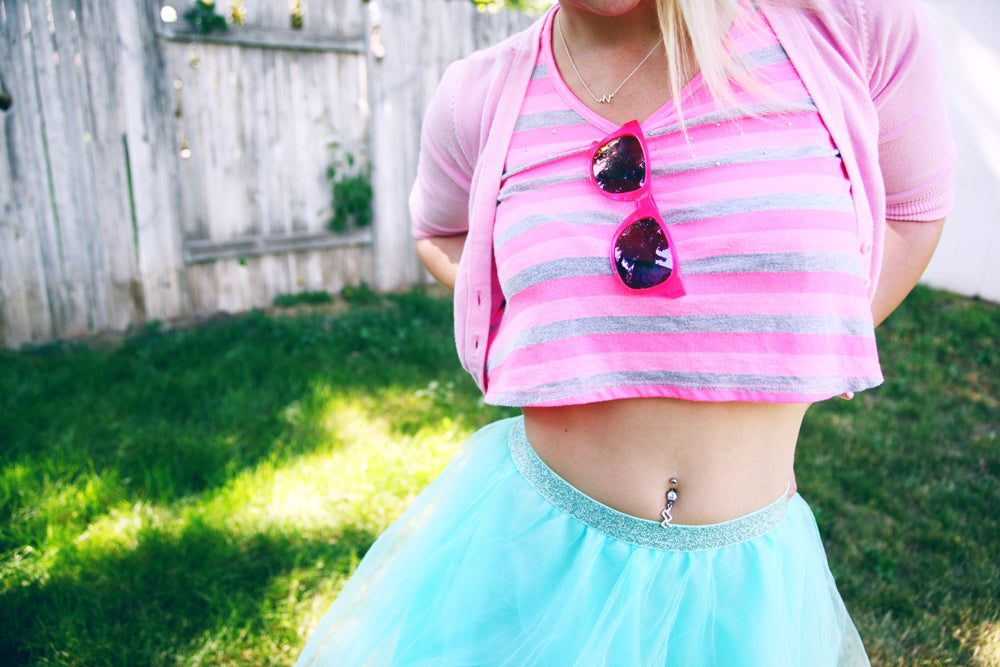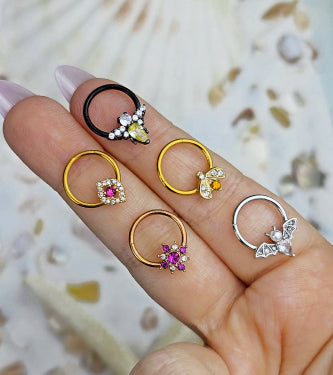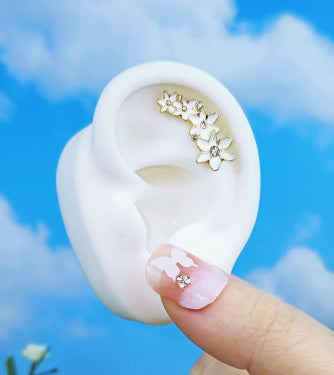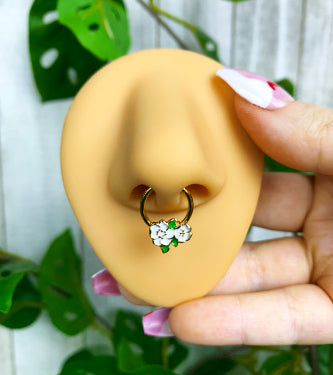Like many things in life, when you decide to go get a piercing done the best way to have a great experience is to be prepared. There are things you’ll need and best practices for how to prepare yourself for the experience.
Before Your Piercing
The most important thing to do before you get a piercing is to make sure that you are going to a safe, reputable piercer in a clean shop with all the appropriate equipment, gloves, and sterile supplies. There are lots of ways to do your homework about a shop or piercer, from reading reviews online to seeking recommendations from friends who have had a great piercing experience.
Once you have a shop in mind, make an appointment. Some shops take walk-ins, but they may be busy the day you go, and it gives your piercer time to prepare for you and your needs. Call to see if you should make a separate appointment for a consultation if you have a unique anatomy or want to ask questions to make sure this is the right piercer and piercing for you.

How to Prepare
There are some important steps to take the day before your piercing that will help you have a great experience and leave you in good shape for the big day. If you’re prepared mentally and physically you will have a better experience and will be prepared to heal more quickly.
- Get a full night’s sleep the night before
- Don’t drink or do drugs the night before
- Eat a light meal
- Stay hydrated
- Reschedule if you are sick!
As it says above, make sure to eat a light, healthy meal within a few hours of your appointment. This will help to keep your blood sugar steady so you will be less likely to feel faint or pass out. Be respectful to everyone at the shop and reschedule your piercing if you feel unwell. Otherwise, show up rested and ready and your piercing experience will be a success!
What to Bring
Once you’ve made an appointment with a professional, safe piercer and the day has come you want to make sure you have everything you need for the big day. Listed below are the most important things you’ll want to make sure to take with you.
- Your ID – most states don’t allow anyone under 18 to get a piercing without parental approval so it’s best to bring your ID even if you are over 18 so that your piercer is able to verify your age. If you are under 18, make sure Mom, Dad, or your legal guardian tag along to give permission.
- Payment – a good rule of thumb for any piercing is to call ahead and see what types of payment your shop takes. Most accept cash or credit, so make sure you have your wallet and are prepared to both pay and TIP your piercer.

Who to Bring
On the day of your piercing, you may want to bring someone with you for moral support or a ride to and from. If that’s the case, make sure to call the shop and see if that’s allowed or if your guest will have to wait outside. The shop may have occupancy limits due to COVID, or your piercer may have their own rules. If you do bring someone who will be in the room for your piercing, make sure their support doesn’t interrupt the process or hinder your piercer’s work.
Safety and Risks
While choosing a safe, reputable shop and piercer will cut down the risks of getting a piercing dramatically, there is always the possibility. Listed below are a few possible risks when you get a new piercing. Some of these sound pretty scary, but the more you know the less likely you are to have complications after your piercing.
Allergic Reactions can be caused by the type of jewelry used for your piercing or even by safety measure like latex gloves depending on the allergies you have. If you notice a reaction during or after your piercing, speak up! Check with your piercer or a doctor to make sure the reaction isn’t serious.
Oral Complications include swelling of your tongue or lip after a piercing, pain, changes in speech, or difficulty swallowing. If any of these occur, contact your piercer or a medical professional right away to prevent permanent damage.
Skin Infections and other Skin Problems are indicated when you notice excessive swelling, pain, a piercing that is oozing blood, or the presence of puss. If any of these occur, contact your piercer or doctor!
Bloodborne Diseases are a rare threat and are most often caused by unsafe practices while piercing. It’s your job to make sure you see proper safety measures being taken during your piercing and if you don’t, stop and leave. Serious diseases like hepatitis can be contracted in an unsafe environment so do your research before you pick your shop and piercer!
Tearing or Trauma
In most cases, if you don’t play with your new jewelry your piercing should not tear. Tearing is different than migration or rejection because it is usually caused by an accidental snag of your new piercing or unexpected trauma. Avoid activities that might cause this like contact sports, wearing clothes that can grab or snag the jewelry, and general horseplay (thanks Mom!). Besides the pain, a torn piercing may require stitches to repair and close, which could prevent repiercing and leave you with scars, so be careful with your new piercing!
After Your Piercing
Now that you’re pierced, it’s your job to follow any instructions your piercer gives you for aftercare so that your piercing heals properly. When you keep your piercing and jewelry clean, don’t play with or rotate the jewelry, and avoid activities like swimming that can cause infection. Remember, there are risks with any activity, especially piercings, but if you take proper precautions before and the best care after, you’ll have your piercing for a lifetime!






